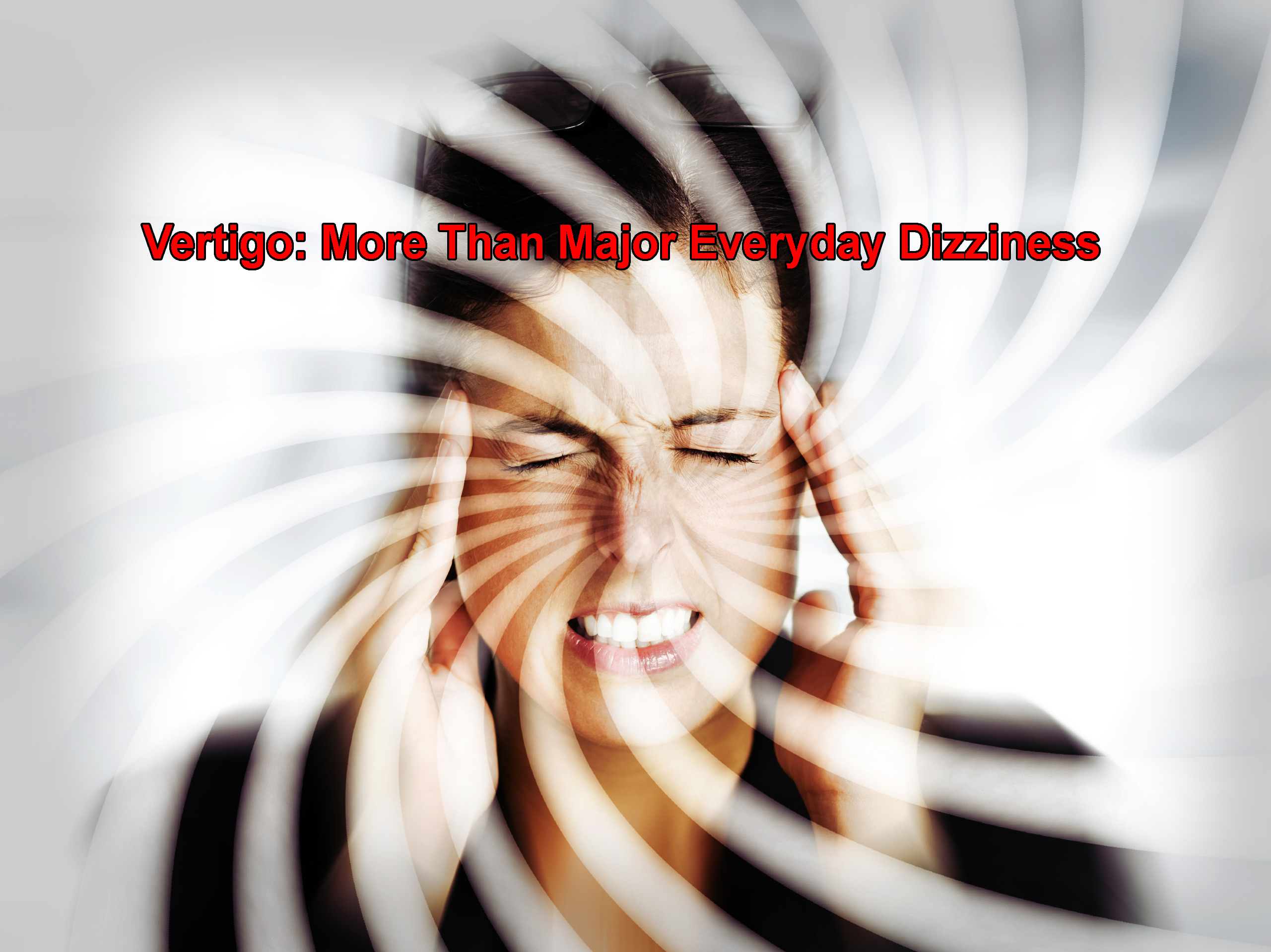Vertigo: More Than Major Everyday Dizziness
40% of people suffer from vertigo, this is rare. But this is something that affects people at some point in their lives. We are all often dizzy due to fatigue or drinking too much, and this may also be a cause of any prescribed drug. Vertigo dizziness, however, is something different and much more serious because getting out of control can affect your vision and disrupt your body balance.
Vertigo can be developed for any reason, such as heart disease, paralysis and excessive depression, stress or anxiety. One of the main causes of vertigos is the problem in the inner ear because it can affect your vestibular system or the assisting system, balancing brain function. This includes many serious symptoms, but is associated with dizziness, nausea, and a feeling of bedtime.
It is important to learn about dizziness and symptoms to get better and timely treatment.
What is Vertigo?
A feeling that allows you to turn your head in an uncontrolled way, and you believe that you feel those around you. The inner ear problem is the main cause of vertigos, and this can be due to any injuries, drug effects and paralysis.
But the good thing is that the symptoms disappear after a while because our brains have adopted the changes over time and have become better.
But it is still important to know the symptoms thoroughly, so you may know the reason behind your constant dizziness.
Symptom 1: Dizziness and Disorientation
One of the most common and reflective symptoms of the disease is confused emotions and severe dizziness.
People suffering from vertigo basically feel that doctors are turning their heads and going away, their visions are toppling and they are being pulled or pushed.
In vertigo, sudden movement of the eyes can cause dizziness, but may take up to one minute.
Dizziness and Disorientation, Loss of Balance, Shaking Eye Movements, Permanent Headaches, Chronic Nausea, Tinnitus or Hearing Loss in the Ears, Frequent Vomiting, What is Terlemevertigo, Vertigo: May be More Than Everyday Everyday Dizziness
Symptom 2: Chronic Nausea
Vertigo can also cause movement disorders, which can cause nausea. Other symptoms of vertigo are no longer than one minute, but nausea may last a little longer and may be chronic enough to resolve. If you feel any signs of vertigo, then make sure you have a nausea treatment with you.
Symptom 3: Tinnitus or Hearing Loss in the Ears
Vertigo has a direct effect on a person’s hearing, since it is usually caused by an inner ear problem. You may have difficulty hearing along with the ringing tones in your ear.
The reason behind these symptoms is due to Meniere’s disease, but some foods allergy, and so on. It is very difficult to understand why.
If you feel something wrong in your ear, like hearing difficulty or these sounds, then you should know that vertigo is here.
Symptom 4: Frequent Sweating
During vertigo attacks, you may feel excessive sweating on your body, especially on the palms and feet. When you have severe headaches, sweating follows confusing moments. The same goes for vertigo.
However, if you still feel excessive sweating before another vertigo symptom occurs, this may cause any other cause or disease.
Symptom 5: Persistent Headaches
All these nausea-sensations, dizziness and dizziness can give you serious headaches. Vertigo can disturb your vestibular system and cause constant headaches due to an unpredictable and sudden dizziness.
In this case keep the drug from headache along with attacks of vertigo.
Dizziness and Disorientation, Loss of Balance, Shaking Eye Movements, Permanent Headaches, Chronic Nausea, Tinnitus or Hearing Loss in the Ears, Frequent Vomiting, What is Terlemevertigo, Vertigo: May be More Than Everyday Everyday Dizziness
Symptom 6: Shaking Eye Movement
According to experts, dizziness can cause dazzling eye movements that you cannot control. Although this actually occurs after attacks, not after the symptom. Except for another symptom of dizziness, but if there is nothing to shake the eye, then there may be another reason.
Symptoms begin to return to normal when our brain relaxes under diffuse vertigo conditions.
Symptom 7: Loss of Balance
This sign of vertigo, when the whole world feels like lying in one direction, the world is spinning and throwing your balance, and all you can do is go in the rolling direction.
This may cause you to fall to the ground after attacking your own body balance, but only in extreme cases.
Symptom 8: Frequent Vomiting
If you experience frequent vomiting and numbness, tell it is not just something for dizziness. This may be indicative of a little more than dizziness, and you should go to a doctor because this is a serious condition.
Vertigo can make you feel that you have no control over yourself, but knowing all of these symptoms will help you know the reason behind them, and at least be prepared for the symptoms or upcoming events.














Comments